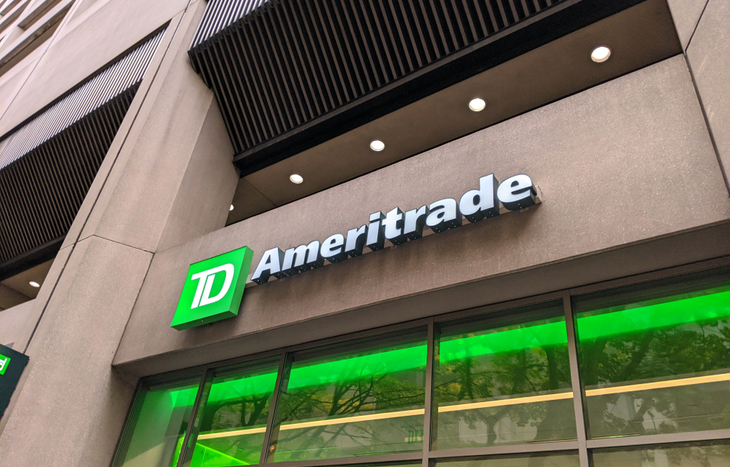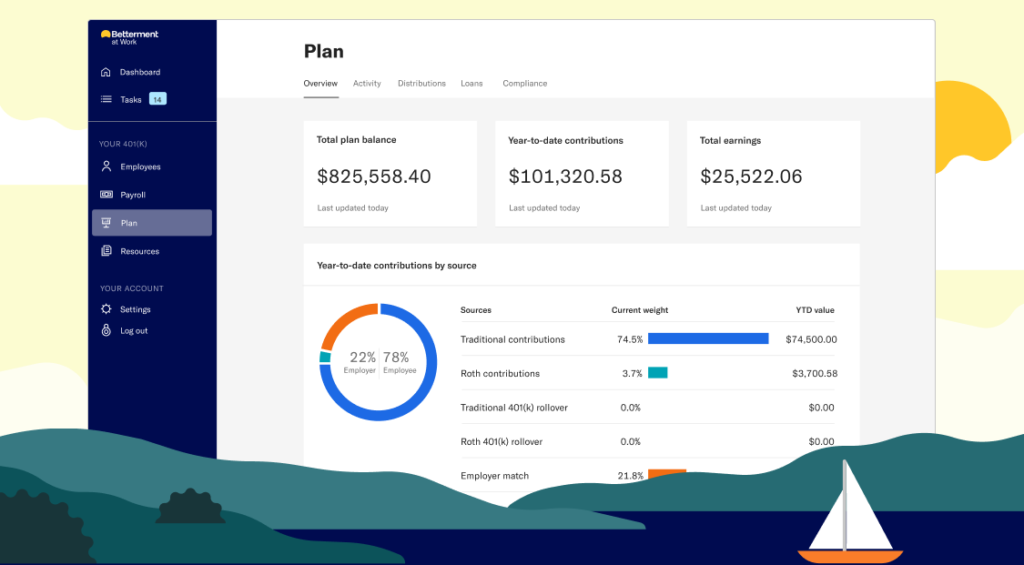Discover the power of investing with the Robinhood app! This Robinhood investing app review covers all the key features, pros, and cons of this popular investing platform. Robinhood offers commission-free, app-based investments with no account minimum. But is it a viable long-term option for traders?
Robinhood investing app review
It’s no secret that younger generations are slow to start investing. Not only are they wary of stock market volatility, but many of them simply do not have the financial resources.
Still, experts continue to advise starting an investment practice as young as possible. And thanks to online discount brokerages like Robinhood, it’s becoming a more viable option for millennials.
Robinhood is highly innovative in its approach to lowering expenses. Their stock and exchange-traded funds (ETFs) are absolutely commission-free, as are their options and cryptocurrency trades. There’s also no account minimum, helping investors to get started sooner rather than later.
And to help cut costs further, the company recently launched Clearing.
The service gives Robinhood the freedom to operate their clearing system themselves, rather than outsourcing it to a third-party. This has allowed them to remove their broker-assisted phone trades fee (previously $10) and reduce their bank reversal fees from $30 to just $9.
However, there’s a trade-off involved.
Robinhood doesn’t offer many advisory services (though their app does walk you through the trading process), nor do they offer mutual account management options, banking, or even physical branches. And while they’ve made strides in improving their research resources, it’s still a sparse offering compared to competitors like E*Trade or the robo-advisor Acorns.
That said, both the apps and the web-based platform are remarkably easy to use. Their outstanding usability and affordability continue to make Robinhood an attractive option for novice traders.
Continue reading for an in-depth overview on the company.
Robinhood Quick Facts
- Trade commissions: $0
- Account minimum: $0 (legally required minimum of $2,000 if you want to upgrade to Robinhood Gold for margin trading)
Robinhood is Best For
Robinhood is clearly better for some investors than others – as are all trading platforms. The online discount brokerage is best for the following types:
- High-frequency stock, options, and/or ETF traders
- Investors wanting a platform focused on its mobile app
- Those looking for individual taxable accounts
- Investors interested in cryptocurrency
- Those wanting to partake in margin trading
Robinhood Investing Pros
There’s a lot to love about Robinhood, especially if you’re just starting out with investments. Take a look at everything the company has going for itself.
Commission & Fees
What could possibly be better for new traders than not having to pay commission fees?
Robinhood is admirably committed to providing commission-free stock options, ETF, and cryptocurrency trades. The benefit compounds the more you trade too – after all, a dollar saved on commissions is an extra dollar you can invest. For comparison, rivals such as E*Trade charge a flat rate of $6.95 per trade, which can make high-frequency trading an expensive venture.
Plus, as mentioned in our introduction, trading fees aren’t the only area where Robinhood cuts costs.
For example, there’s no management fee. And, taking Wealthfront, Betterment Premium, and Personal Capital as examples, you can expect to pay 0.25%, 0.40%, and up to 0.89% respectively in management fees. On an account of $10,000, that means Robinhood saves you between $25 and $89 a year in management fees alone.
In fact, almost the only time you’ll pay fees is for the U.S. Securities and Exchange Commission (SEC) at $13 per $1 million of principal, and the Financial Industry Regulatory Authority (FINRA) trading activity fee at $0.000119 per share (capped at $5.95).
These fees have to be paid regardless of the brokerage you trade through. While other brokerages add a commission on top of these fees, Robinhood does not.
No Account Minimum
Some online discount brokerages have account minimums. E*Trade and TradeStation, for example, both require an opening deposit of $500+.
On the other hand, many don’t. Robinhood is one example of this – meaning you can get started without having to save up enough money to meet an account minimum.
Of course, you’ll still need to have some money in your account. You won’t be able to trade otherwise.
Easy Sign-Up Process
So long as you’re familiar with smartphones and using apps – and Robinhood’s target market most certainly is – you’ll find the sign-up process quick and painless. In fact, it should only take ten minutes or less to complete. All you need to do is provide a few basic details about yourself, add your contact details and Social Security number, and link your checking account.
Robinhood says that account approval happens within an hour. So in less time than it takes to watch a movie, you’ll be able to start adding funds.
The funding process is also very quick. Most major U.S. banks allow for instant verification, so you won’t have to waste time reporting micro-transactions. As long as you’re not transferring more than $1,000 at a time (either to your Robinhood account or from selling stocks), you’ll be able to access those funds immediately.
It’s only when you start moving more than $1,000 at a time that there’s a mandatory waiting period of four to five business days. This is largely to prevent fraud, but the first two days are also a SEC requirement.
If you’re going to be transferring funds fairly regularly, you can also set up automatic deposits according to a weekly, biweekly, monthly, or quarterly schedule.
Usability
Robinhood’s interface has none of the usual frills you find on some of their competitors’ sites (E*Trade, for example, is a usability nightmare1).
This also means that there are considerably fewer resources, which could be viewed as a negative. However, so long as you know what you’re looking for, the platform is one of the most user-friendly options out there.
Both the app and website being incredibly intuitive also works in the favor of novices who would otherwise be overwhelmed. It’s quick and easy to try your hand at a number of stock trading orders. These include limit, stop limit, and stop orders.
This will streamline your selection process even further and help ensure you never miss a good investment opportunity.
Cryptocurrency
Cryptocurrency has been all the rage for the past few years. If you’ve been reading up on it and would like to try your hand at trading in cryptocurrencies, the good news is that Robinhood lets you do so commission-free.
At present, you can buy and sell the following cryptocurrencies with Robinhood:
- Bitcoin (BTC)
- Bitcoin Cash (BCH)
- Bitcoin SV (BSV)
- Dogecoin (DOGE)
- Ethereum (ETH)
- Ethereum Classic (ETC)
- Litecoin (LTC)
Additionally, you’ll get market updates on other cryptocurrencies, some of which Robinhood might be adding to their trading platform in the future (as mentioned on the site, this is not guaranteed):
- Bitcoin Gold (BTG)
- Dash (DASH)
- Lisk (LSK)
- Monero (XMR)
- NEO (NEO)
- OmiseGO (OMG)
- Qtum (QTUM)
- Ripple (XRP)
- Stellar (XLM)
- Zcash (ZEC)
Unfortunately, Robinhood cryptocurrency trading isn’t available in every state yet. Check the following page to see whether it’s available for your state. If not, don’t worry – if you’re a client, you’ll get notified as soon as it becomes available for you. Robinhood is planning on adding more states to the list.
Robinhood Gold
If you’re interested in margin trading, you can get started with Robinhood Gold.
Margin trading is also known as trading with borrowed money, because that’s essentially what it is. You take a loan out with the brokerage (in this case, Robinhood) against your current investments, and use that loan to trade.
Robinhood calls their margin trading account Robinhood Gold, and the loan Gold Buying Power. Bear in mind that you won’t be able to invest in options or cryptocurrencies using this money.
It’s entirely optional, which is a good thing – because margin trading entails additional risks. You’ll also need to match the FINRA Margin Requirements, which means an account minimum of $2,000. Additionally, there’s a flat-rate fee you’ll need to pay, depending on which Gold Tier your loan matches. For example, the $200/month tier charges a 5% margin fee, while loans of over $50,000 incur an annual percentage rate (APR) of 5% interest.
However, you’ll also enjoy extended trading hours. While other members have to operate within those trading hours, you’ll be able to buy and sell 30 minutes before the market officially opens, as well as for two additional hours after it closes.
In case you were wondering, this is also how Robinhood makes their money.
SIPC Member
Robinhood is a member of the Securities Investor Protection Corporation (SIPC).
This means that your Robinhood investments account is insured for up to $500,000. If the company ever fails, the cash and securities (for example stocks and bonds) you lose as a result are covered.
Bear in mind that this does not mean you’ll recover market-related losses.
Improved Research Resources
As mentioned earlier, Robinhood doesn’t offer quite the same level of research resources and tools as some of their competitors.
This could be seen as a negative, but we find that the company has been making an effort to improve in this regard.
For example, Robinhood now offers Morningstar analyst ratings, lists of top movers, links to earnings calls, and earnings calendars. And in addition to the “Price Paid” comparisons we mentioned with regards to usability, you can view popular stocks through the “People Also Bought” feature, as well as candlestick charts on the app.
Robinhood Investing Cons
Unfortunately, we do have a few contention points when it comes to Robinhood’s services. Here are a few things to keep in mind if you’re considering the platform:
Limited Securities
While Robinhood does offer some variety of securities, they don’t currently support mutual funds and bonds.
Another notable omission is the lack of automatic dividends reinvestment. This means that when dividends are paid out, they’re credited to your account as cash instead of being automatically reinvested into the security that paid them out in the first place. While it’s a simple matter to reinvest the funds manually, it’s still an unnecessary hassle – and can lead to cash drag.
However, Robinhood does say they hope to add this feature in the future.
One Account Offering
Traders ought to invest a percentage of their funds into a tax-advantaged account like the 401k or individual retirement account (IRA) before starting with a taxable account. Robinhood only deals with the latter, also referred to as a brokerage account.
Is Robinhood Right For You?
While there are a few things you’ll have to give up in exchange, when Robinhood claims to be commission-free, they mean it.
If you’re a novice trader and cost-efficiency is your number one concern, we would certainly recommend the platform. On the other hand, if you value advanced trading tools and a full range of securities, you may want to look elsewhere.
Conclusion
At the end of the day, while Robinhood is a fantastic starting point, beginners should recognize that it can’t be your only investment platform. Still, their commission-free model is most certainly ideal for learning the ropes and supplementing other investment avenues.

